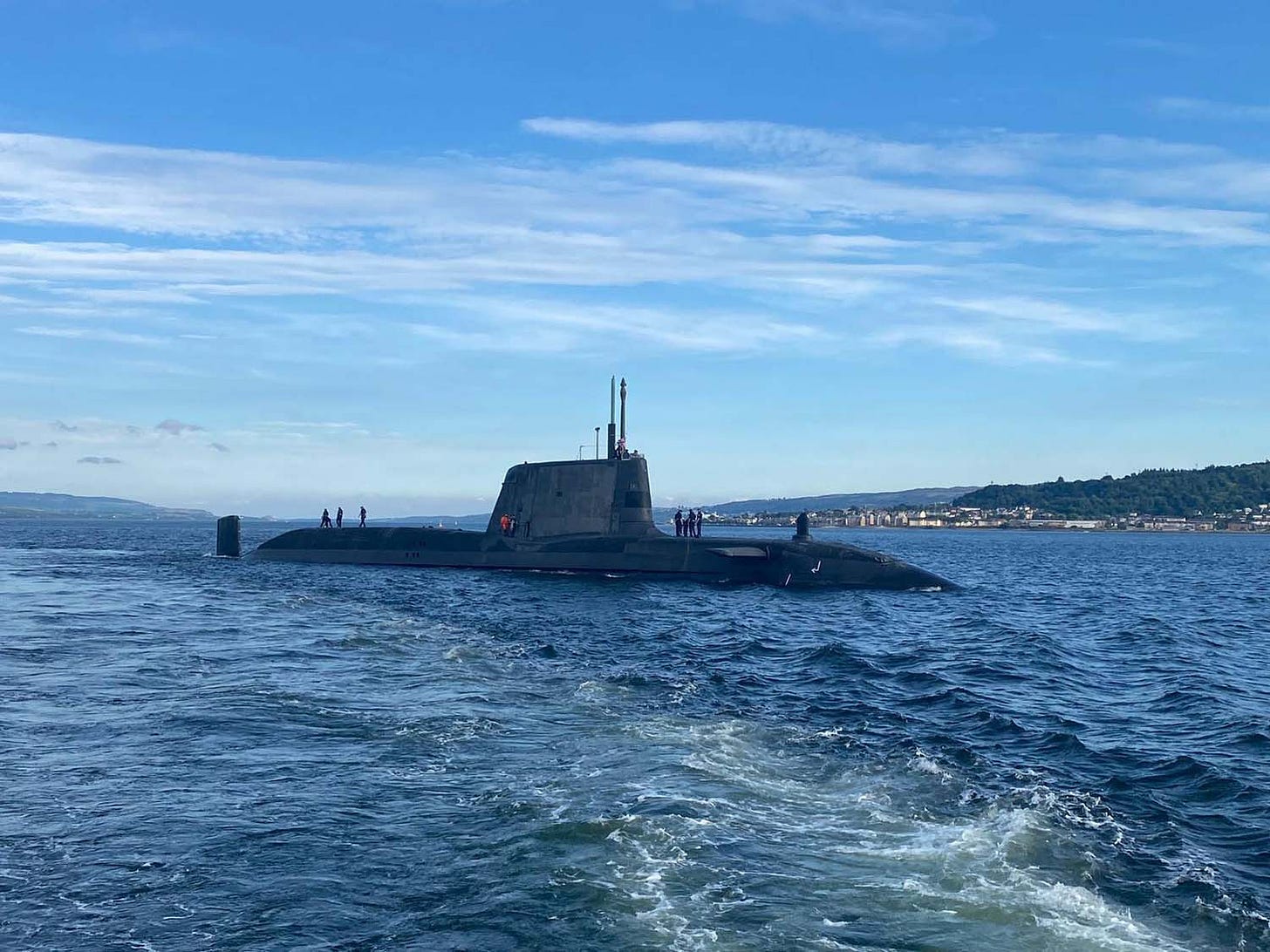What caught my eye - March 2025
Climate risk missing from ODNI annual report, Canada, submarines and water along the US-Mexico frontera
A brief one this month as I’m tied up with some life matters. But it’s chunky nonetheless. Happy readings.
The big one out of the US is that the Office of the Director of National Intelligence’s annual threat assessment - the most high profile amongst the US government’s publicised threat assessment of the global risk landscape - chose to omit climate change from its latest edition. This is the first omission in a decade, with editions during the first Trump administration mentioning climate risks, making its absence in the 2025 edition a deliberately political choice. While these formal assessments, and how they are created, are a mix of good analysis and politics, it remains important that the analytical community serving a country’s core mission to be able to call a spade a spade. When a system can’t at least communicate factual truths to itself, a nation’s ability to protect itself from domestic and external threats begins to structurally falter. For corporates and security professionals, reports like the ATA and its equivalents (e.g. Netherlands, Estonia) are one important input for internal strategic risk assessments, given the relative credibility and resources of state services. The clear de-emphasis of climate risk should be a renewed reminder to not only critically consider our information sources, but to also diversify to construct our own mosaic of the threat landscape. In other words, US’ de-emphasis of climate risk should not be a signal to similarly re-weigh those risks in our own analysis, but as an impetus to invest the resources needed to fill the gaps - public and private.
Going the other way, Canada is responding to both political exigencies, structural defence vulnerabilities and long-term forecasting, is bolstering its Arctic capabilities. Most high profile amongst the announcements is the development with Australia of an over-the-horizon early warning system. Canada currently relies on the US significantly for early-warning radar. As the polar ice caps melt further and the region becomes more exploited militarily and commercially, expect Canada - no matter who is the next prime minister - to invest heavily in the Arctic.

The Economist has an interesting piece on one adaptive challenge to militaries, citing a NATO study that warming average seas would make submarine detection more challenging. Changes in oceanic currents, temperature and salinity can impact the effectiveness of sonar capabilities which is core to anti-submarine warfare. The research suggests that in parts of the North Atlantic the sonar range may fall by 40%, though more details about the modelling and assumptions need to be shown to be more confident of the findings (then again it’s NATO research so we’d expect some of this to be at least nominally kept under wraps).
Finally, a water war of sorts may be brewing between the US and Mexico, as if the two countries don’t have enough to contend with. A 1944 treaty manages water supply between the US and Mexico via bilateral commission which includes the Colorado, Tijuana and Rio Grande rivers. While Mexico has failed to draw on its allocation of Colorado River water in recent years - because it dries up - it has accrued “water debt” by not delivering sufficient volumes of Rio Grande water to the US. This latter point has long been a sore point for communities and businesses north of the border and is what the administration is likely to draw on in coming weeks to up the ante on Mexico to draw concessions on tariffs, trade and immigration. Water risk and water-based conflict is one of the primary facets of climate insecurity (I wrote about this in a 2022 post) and we are now seeing a new case study begin to play out here. They’re particularly thorny when borders and multiple jurisdictions are involved - which is common given rivers form natural boundaries between communities and riverine access can be vital for the economic viability of a state or country.




